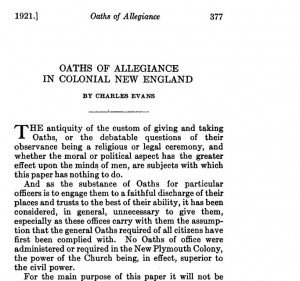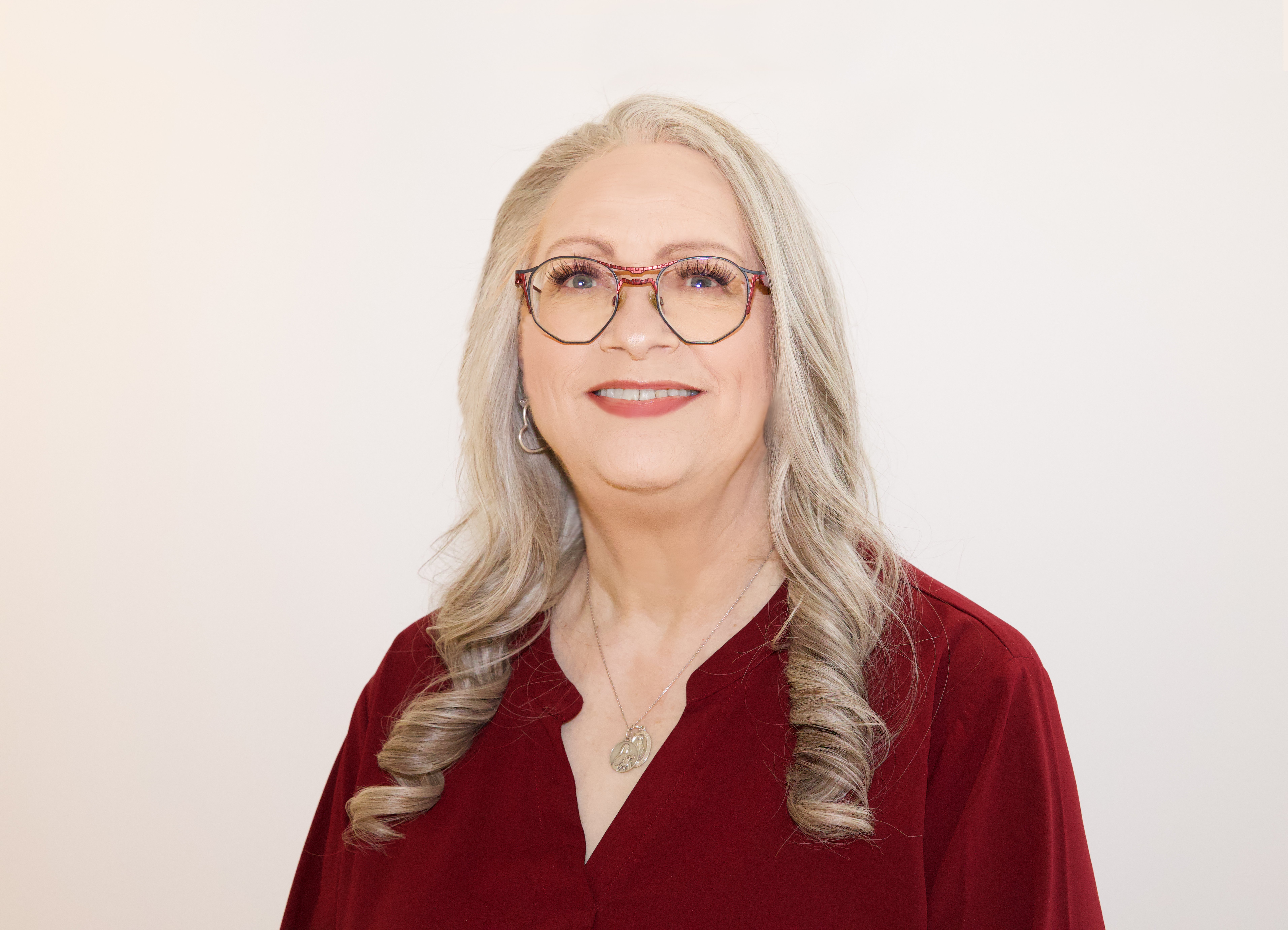 I was recently asked the difference between the Freeman’s Oath, the Oath of Allegiance, and the Oath of Fidelity in Massachusetts Bay Colony. The history of oaths in the American Colonies actually requires the researcher to go back to the early 1600s under King James I (1603–1625). After all, those who were living in the colonies during the seventeenth century were all British subjects.
I was recently asked the difference between the Freeman’s Oath, the Oath of Allegiance, and the Oath of Fidelity in Massachusetts Bay Colony. The history of oaths in the American Colonies actually requires the researcher to go back to the early 1600s under King James I (1603–1625). After all, those who were living in the colonies during the seventeenth century were all British subjects.
Plymouth
Upon their arrival in Plymouth Colony, William Brewster and the additional chief men, as they were called, agreed to take the Oath of Supremacy, acknowledging the King of England as the supreme ruler and head of the Church of England and denying power to the Pope. In the early 1620s, the Oath of Allegiance and Fidelity was actually a single oath given in Plymouth, which was not actually a New England colony as it lacked a charter and its government functions were actually those of a corporation. The Oath of Allegiance and Fidelity required that the individual taking it not enter into any action or say anything that could lend itself to the overthrow or the destruction of the “Colonie, or Corporation of this towne Plimouth in New England.” Interestingly enough, it never mentioned the King of England.
By 1636, every freeman (any established member of the colony who was not under legal restraint) was required to take the Oath of a Freeman, swearing allegiance to the sovereign lord “King Charles, his heires & successors” in addition to doing nothing to overthrow the Colony of “New Plymouth.” By 1658 the Oath of a Freeman was revised to omit King Charles and reverted back to the “State and Government of England.”
Massachusetts Bay
Sir Henry Rosewell and his associates were granted a charter 4 March 1628/29. Business was conducted for the Massachusetts Bay Colony in London until 1630, when John Winthrop was chosen as governor.
Massachusetts Bay Colony took a slightly different approach to the Oath of a Freeman, requiring that the aspiring freeman first be a church member, which usually meant membership in one of the recognized churches. This law was agreed to in 1631 in Salem and then modified slightly in 1632 to prevent civil magistrates from being elders in the church. Additionally, once the Oath of a Freeman was taken this individual was allowed to vote.
The Bay Colony also required, beginning in 1634, that any man age 16 or above who had been or planned to be a resident in the colony for six months, and who was not otherwise “infranchized,” be required to take the Oath of Residents. The man taking this oath swore that he was bound by the laws of the colony.
The earlier Oath of a Freeman was revoked at the general court held at Boston 14 May 1634 and a new oath was written into the record and required of freemen going forward. Those who had taken the earlier oath were no longer bound to it.
The Proceedings of the American Antiquarian Society issue of October 1921 has transcribed all of these oaths and describes the history and many of the requirements of the oaths and those who took them.
Share this:

About Rhonda McClure
Rhonda R. McClure, Senior Genealogist, is a nationally recognized professional genealogist and lecturer. Before joining American Ancestors in 2006, she ran her own genealogical business for 18 years. She was a contributing editor for Heritage Quest Magazine, Biography magazine and was a contributor to The History Channel Magazine and American History Magazine. In addition to numerous articles, she is the author of twelve books including the award-winning The Complete Idiot’s Guide to Online Genealogy, Finding your Famous and Infamous Ancestors and Digitizing Your Family History. She is the editor of the 6th edition of the Genealogist’s Handbook for New England Research, available in our bookstore. When she isn’t researching and writing about family history, she spends her time writing about ice hockey, covering collegiate to NHL teams and a couple of international teams. Her work has allowed her the privilege of attending and covering the 2018 Winter Olympics in PyeongChang, Korea and the 2020 Summer Olympics in Tokyo, Japan. Areas of expertise: Immigration and naturalization, late 19th and early 20th century urban research, missionaries (primarily in association with the American Board of Commissioners of Foreign Missions), State Department Federal records, New England, Mid-West, Southern, German, Italian, Scottish, Irish, French Canadian, and New Brunswick research as well as Internet research, genealogical software and online trees (FTM, RootsMagic, Reunion, AncesTrees, etc.), digital peripherals, and uses both Mac and Windows machines.View all posts by Rhonda McClure →